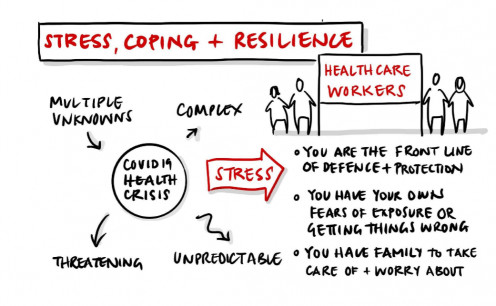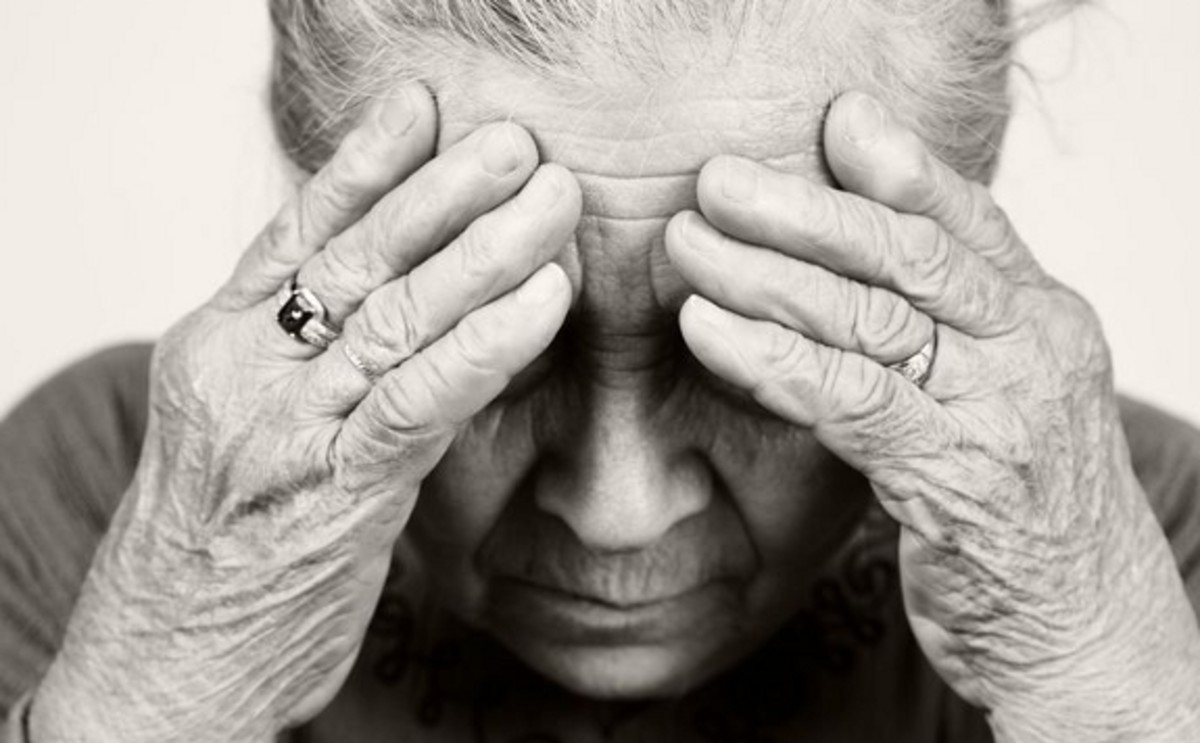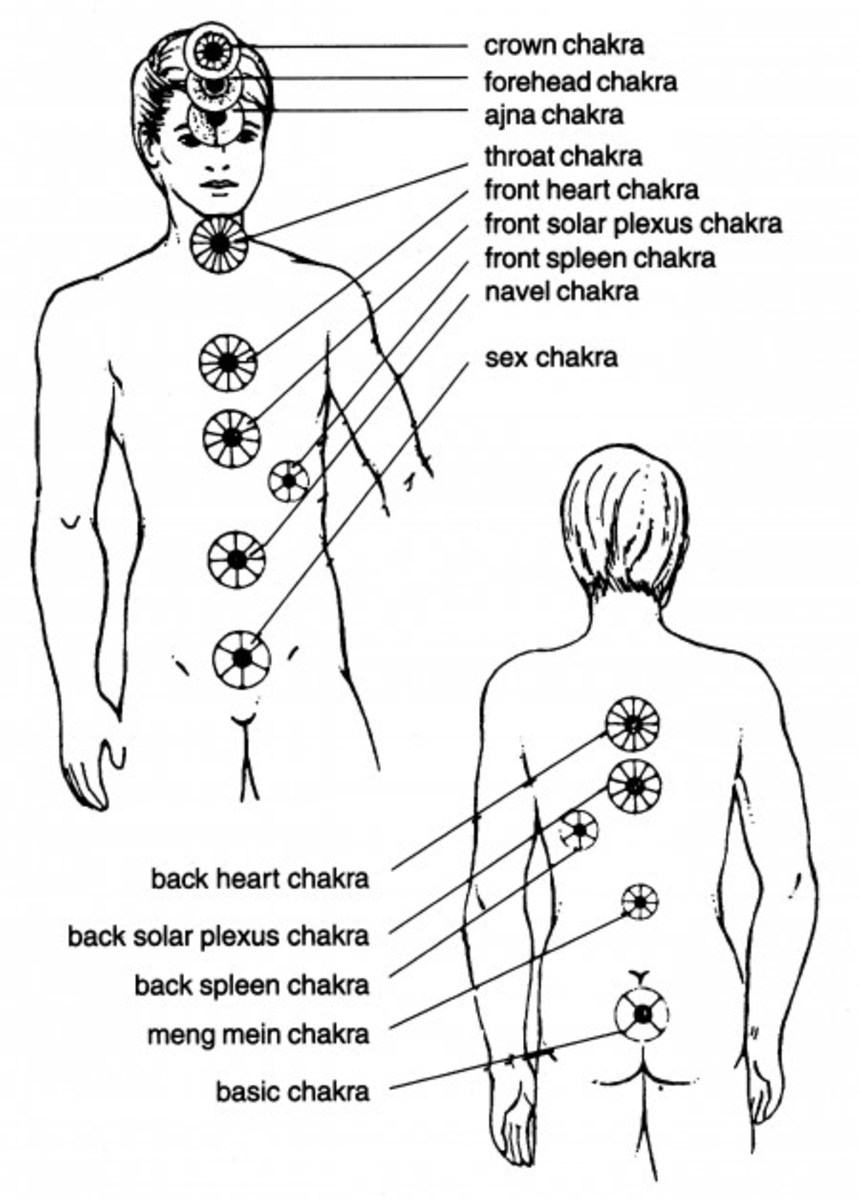- HubPages»
- Health»
- Mental Health»
- Stress Management
Can you Fight the Stress of COVID-19?

What is the Impact of COVID-19 Pandemic on the Mental Health of Global Population?
COVID-19 pandemic has drastically impacted the mental health, wellness, and psychosocial outcomes of individuals across the globe. The health care teams continue to experience elevated levels of stress and anxiety under the impact of their work burden and immense responsibility to contain the pandemic. They also experience a marked reduction in their self-efficacy that continues to challenge their performance and decision-making to an unprecedented level. The disrupted social support and sleep quality due to staff shortage and resource scarcity have converted their fight against COVID-19 into a nightmare. Most importantly, the health care professionals experience an elevated risk of contracting COVID-19 since the hospital environment is conducive to the onset of nosocomial infections. Furthermore, the highly contagious nature of COVID-19 infection risks the lives of the health care teams in a manner to increase their predisposition towards morbidity and mortality. The compliance to social distancing norms and PPEs (personal protective equipment) substantially distresses the medical teams while increasing their frustration and panic. The disturbed sleep quality or sleep latency not only deteriorates their daytime activities but also reduces their cognition and executive functioning (Xiao, Zhang, Kong, Li, & Yang, 2020). Ironically, similar stress and anxiety levels are recorded in COVID-19 infected patients and their caretakers. The poor-rated self-health status and physical symptoms including coryza, dizziness, and myalgia in young patients elevate their depression, anxiety, and stress based on the adverse COVID-19 prognosis. The social stratification of the infected people and their labeling by healthy individuals exert a drastic impact on their mental health and well-being. The stakeholders of the COVID-19 infection management teams strive for enhancing their social connectedness through digital platforms in the context of improving their moral support warranted to fight against the COVID-19 pandemic. The social confinement of the healthy people across the globe due to lockdown measures also increases their risk of panic attacks and anxiety-depression. Eventually, the COVID-19 pandemic continues to increase the risk of domestic violence and suicidal or homicidal attempts by the home-confined people. The drastic slowdown of the global economic infrastructure, loss of jobs/employment opportunities, and social restrictions continue to deteriorate the mental health of children, adolescents, youngsters, middle-aged people, and elders across the globe. These outcomes necessitate the configuration of remedial measures to reduce the COVID-19 related fear and apprehension of the global societies (Wang et al., 2020). The acquisition of social support at this point appears unrealistic and troublesome since the COVID-19 prevention guidelines stringently advocate social distancing and confinement of the healthy as well as infected individuals.
How Could You Improve Your Mental Health in the Wake of COVID-19?
Interestingly, evidence-based clinical literature recommends meaningful measures for the mental health enhancement of the global population. Some of these measures are listed below (Hiremath, Kowshik, Manjunath, & Shettara, 2020).
- People need to understand and face their fears while realizing that COVID-19 related insecurities exist with every human being on the globe.
- The individuals of various age groups must adaptively optimize and orchestrate their daily living activities for the rapid mitigation of their anxiety levels.
- The segregation of daily schedule into non-work and work time slots is highly needed to enhance self-discipline for the management of COVID-related stress.
- Daily engagement in stress bursting activities is essentially needed in leisure time. For example, individuals must utilize their isolation period to engage in their hobbies. This will increase their feeling of fulfillment and joy.
- The division of working hours into several short breaks will not only enhance work focus but also reduce the extent of stress and frustration.
- The individuals must engage themselves in various interactive platforms and configure social groups through the use of digital media. Regular interactions of people in these groups will potentially reduce their intensity of social isolation.
- The family members must spend quality time with each other within their home confinements after sparing some minutes out of their working routine.
- The interactions with social groups, friends and family members through WhatsApp and Facebook platforms will enhance the sense of inclusion and positivity among individuals.
- The individuals of various age groups should enhance their learning processes while selecting meaningful tasks, hobbies, or activities for improving their skills and competence.
- The regular writing of emotions and thoughts will also help people to explore a range of stress-busting strategies.
- The individuals must enhance their adaptability for effectively improving their motivation and concentration level.
- The youngsters, adults, and elderly people need to engage themselves in physical activities of their choice for maintaining their physical health and immunity. Daily stretching exercises or meditation could potentially enhance their survival capacity and concentration to a considerable extent.
- People must set meaningful expectations from their family members and caretakers. Furthermore, they must also adopt rational thinking while empathetically dealing with each other to reduce the risk of domestic violence and suicidal or homicidal tendencies.
- The individuals of various age groups should optimize their stress threshold while establishing their mental and physical health priorities.
- People should maintain adequate sleep hours and eat a healthy diet for improving their immunity.
- People should refrain from performing Google searches regarding disease symptoms and must not self-medicate themselves in any situation. They should stringently rely on the physicians’ recommendations and take the assistance of telemedicine for attaining medical advice.
- People should not frequently explore COVID-19 data and seek immediate medical assistance after experiencing any cardiorespiratory symptoms.
- The regular engagement in breathing exercises is highly recommended for overcoming passive emotional spirals.
- The alcoholics and smoking addicts must take the COVID-19 pandemic as an opportunity to overcome their unhealthy habits. They must utilize meditation to effectively reduce their craving for alcohol and nicotine.
- The alcoholics and smoking addicts must distract themselves from their drinking or smoking urge while participating in family discussions.
- People must understand that they are not alone in their fight against COVID-19. They should share their fear and panic with health experts and take their advice for remediation.
- People must not hesitate in sharing their feelings with loved ones or health care professionals for enhancing their motivation level.
- The mitigation of financial strain is highly necessary to downgrade the risk of depression and panic. Accordingly, people must consult with their financial advisors over internet-based platform or phone for planning their economic resources. They must also view the available earning and investment options and attempt to increase their engagement in home-based earning opportunities.
- People must not predict the future and refrain from apprehending the global outcomes of COVID-19. They must view facts and avoid irrational speculation. They must also reject the unsubstantiated data about COVID-19 and avoid relying on social media content without affirming their suspicions.
- People must keep their hope alive and believe in every possibility of the global recovery from the COVID-19 pandemic.
What Mental Health Management Strategies are Recommended to Overcome the Stress of COVID-19 Pandemic?
The health care organizations across the globe must coordinate and configure the following strategies to reduce and control the mental health challenges of people in the wake of the COVID-19 pandemic (Rajkumar, 2020).
- The configuration of mental health care teams to address the emotional distress of people is highly needed on a global scale. These teams must orchestrate focussed health care strategies and provide cost-effective recommendations through digital platforms.
- The development of health care forums is needed to initiate meaningful discussions between individuals and health care professionals in different time slots.
- The community health professionals must upgrade their mental health care skills and knowledge with the core objective of providing psychosocial support to distressed people.
- The health care professionals of the developed and developing nations must initiate online surveys to evaluate the mental health issues of their populations.
- The development of robust mental health education measures is highly needed to enhance the psychosocial skills of populations. The provision of online learning materials for people is required to improve their cognition, executive functions, and rational thinking pattern.
- The provision of online self-help sessions and counseling services is also required to potentially enhance the mental health outcomes of depressed and anxious individuals.
- The health care professionals across the globe need to organize asynchronous telepsychiatry consultations through the provision of structured letters for extending mental health support, including counseling sessions to the eligible candidates.
- The mental health care professionals should make every effort to equitably provide accessible mental health services to the underprivileged and stratified populations.
- The provision of telemedicine-based consultation services for the stressed people will substantially reduce their risk of COVID-19 infection.
- The mental health professionals should also administer accessible counseling and support interventions to the COVID-19 infected people and their families for improving their coping skills and will-power to combat the adversities of the pandemic. The remote psychosocial assistance to such individuals is the need of the hour and requires appropriate resource allocation by the health care organizations.
What Specific Parameters Should Mental Healthcare Professionals Judge and Mitigate for Improving the Health-Related Quality of Life of the Global Population?
The mental health care experts across the globe must evaluate and improve the following attributes for enhancing health-related satisfaction of healthy, COVID-19 infected, and otherwise diseased individuals (Li, Wang, Xue, Zhao, & Zhu, 2020).
- Social uncertainty
- Social risk judgment
- Ambiguity in behavior
- Aggression
- Anxiety and depression
- COVID-19 related misconceptions
- Self-care capacity
- Self-reflection
- Thought content
- Intense urge for smoking and/or alcohol consumption
- Reduced decision-making
- Accessibility to mental health counseling
- Interest in indoor activities
- Connectivity with health care professionals
- Contentment level
- Perceived socioeconomic threats
- Fear of contracting COVID-19 infection
- Mood fluctuations
- Feelings of isolation
- Health-related behaviors
- Emotional health
Why is it Necessary to Record the Psychological Experience of COVID-19 Patients’ Caregivers?
The COVID-19 caregivers experience an immense risk of contracting COVID-19 infection. The limited availability of personal protective equipment (PPE) and restricted health care resources potentially challenge the management of COVID-19 cases inside the clinical settings. Furthermore, the caregivers require dealing with the psychological stress and negative emotions of the COVID-19 infected patients while extending their working hours to provide uninterrupted health care support across the clinical practice environment. The conservation of protective clothing by nurses and physicians inside the COVID-19 health care wards proves highly challenging that eventually increases their risk of anxiety and depression. The health care professionals also experience a drastic reduction in their expressed emotions and face numerous challenges in providing empathetic care to COVID-19 infected patients. The health care teams inside the COVID-19 wards are forced to distance themselves from their family members for a longer duration to reduce the risk of local transmission. The health care teams' limited interpersonal interactions elevate their psychological decompression to an unprecedented level. The medical professionals encounter substantial trouble in handling their emotional storm that potentially elevates their risk of a nervous breakdown.
What Psychosocial Strategies the Health Care Professionals Must Adapt to Challenge their COVID-19 Management Stress and Emotional Burden?
The health care professionals must try to practice the combination of the following techniques or measures to combat their emotional burden and COVID-19 management stress (Sun et al., 2020).
- Emotional venting through extended interpersonal discussions as per feasibility while following COVID-19 prevention guidelines.
- Music meditation
- Mindfulness exercises
- Breathing relaxation exercises
- Time management
- Workload management
- Work allocation management
- Disengagement with cases other than COVID-19
- Enhancement of self-protection measures
- Self-reflection of the stressful circumstances
- Participation in short counseling sessions to overcome the physical stress of surgical mask strap pinches and other PPEs
- Emotional management to overcome PPE-related symptoms including palpitations, chest tightness, and headaches
- Management of COVID-19-related fear
- Enhancement of coping skills for overcoming the adversities of the deleterious hospital environment
- Extended engagement in group discussions through digital platforms
- Engagement in email/letter writing activities in leisure time
- Eating and drinking fluids frequently in short spurts for immunity enhancement
- Extended engagement in learning and teaching activities
- Greater use of grateful sentiments and affection for team members during working hours
- Self-reflection and self-appreciation to overcome the stress of COVID-19 management burden/responsibilities
- Meaningful use of social support measures for enhancing individual happiness, relaxation, and calmness
This content is for informational purposes only and does not substitute for formal and individualized diagnosis, prognosis, treatment, prescription, and/or dietary advice from a licensed medical professional. Do not stop or alter your current course of treatment. If pregnant or nursing, consult with a qualified provider on an individual basis. Seek immediate help if you are experiencing a medical emergency.
© 2020 Dr Khalid Rahman








